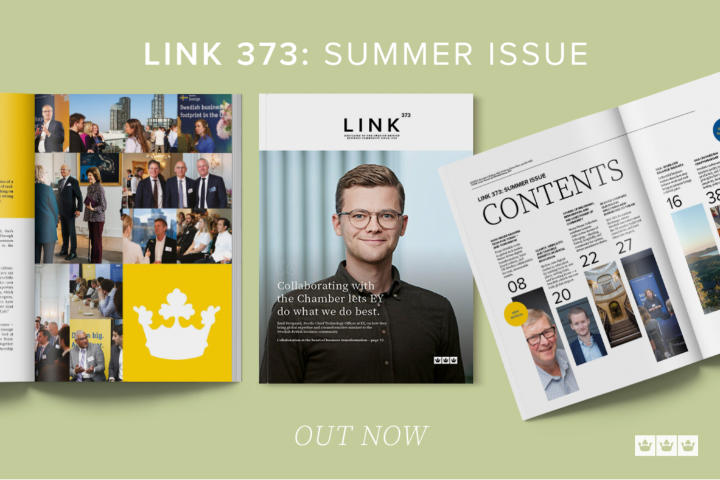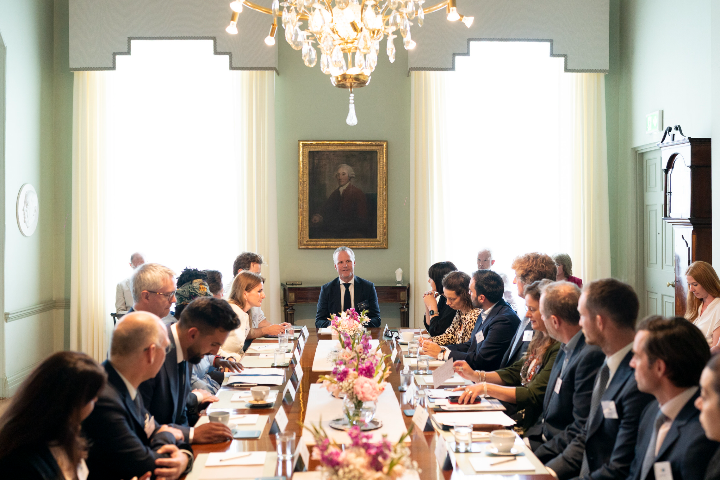
Getting a grip on cultural differences
22 February 2019
Erik Helldén
Regardless of profession, understanding the business culture of one’s workplace is a key driver for the success - or failure - of any employee. Cultural nuances in management, decisions and business functions can be difficult to grasp, especially if you are relocating to a different country. Sweden and the UK have a long history of trading together, but the differences between the countries can be bigger than you might think. “In the UK, it can even be hard to find the right address to a company,” said Tania Tandon, director of the SCC’s new training course that launches in March.
The aim of the upcoming Business Culture Foundation Course is to give participants insight into both Swedish and British business cultures and provide the necessary tools to excel in each country’s workplace environment or corporate structures. The foundation consists of two separate courses: ‘Making sense of Sweden’, and ‘Making sense of Britain’ focused on two different target audiences.
The LINK spoke with Tania Tandon, director of the course and co-founder and partner at UK law firm TandonHildebrand, and Elisabet Vinberg Hearn, CEO at Katapult Partners and one of the course’s speakers, about their take on the differences in business culture and what participants can expect.
“The cultural differences between Sweden and the UK are not huge, which is why the two nations trade very well together”, said Tania Tandon. “Language is usually not a problem - it is more the cultural usage of the language that can cause issues. For example, Swedish people relocating to the UK are coming to an environment where it is more difficult to get hold of the right people to do business with. You have to network and search for them - and then decide which ones are right for the business. That is a huge difference. On the contrary, accessibility is not an issue in Sweden, where it is easy to find the right partners, businesses and customers. It often surprises Swedish people coming to the UK that they have to develop their networking skills before they can even talk about their product. That whole stage of the process can be frustrating and come as a surprise. In the UK, it can even be hard to find the right address to a company”.
Tania Tandon, TandonHildebrand
Elisabet Vinberg Hearn will speak on the ‘Leadership’ sessions of the courses that will focus on managing international teams, management approaches and workplace behaviour. She emphasised the real connection between the two countries: “It can be easy to overlook or not quite appreciate the difference in culture that actually exists, because we appear so similar”, she said. “We are all creatures of habit and as we progress in our careers, we learn what works and what doesn’t work, and we use that to guide us in our work setting day-to-day. Leadership is a big part of how an organisation works. When we start working in a different business culture, we need to ‘reset’ our understanding of what is expected of us by our leaders and what people expect of their leader in the new environment”.
Elisabet Vinberg Hearn, Katapult Partners
“Swedish people have a lot of respect for British culture, and for British people”, said Tandon. “Similarly, even though Sweden is a much smaller country, British people have enormous respect for Sweden. I think it is a great alliance. Because of this mutual respect, the exchange of knowledge between the two cultures is often successful. However, there’s an increasing demand for more platforms that facilitate this exchange more effectively, which is why we are providing this course. Being a versatile concept, business culture affects everything from production to accounting. Therefore, each course is divided into shorter sessions touching upon different areas in business”, she explained.
Tania is a co-founder and partner of TandonHildebrand that provide legal and business strategy advice and has a particular interest in cross-border issues and cultures in business. Her aim is for participants to gain an understanding of cultural differences that transcend the business environment, so that their communication, participation and negotiation is more effective. “For the past five years, I have been very active in the Swedish business community in the UK”, she stated. “During that time, I have learned a lot about the cultural nuances that affect people and the businesses they are in. As a course director, I will be able to draw from those experiences and understand where the focus needs to be”.
Vinberg Hearn added: “By exploring what’s different between British and Swedish leadership styles, participants will increase their own awareness, and therefore ability, to fast-forward their success at work in the new culture. Whether you are a leader or not, this course will give you insights and practical tips to apply back at work in how you engage with and influence others, which is at the core of great leadership. Overall, this course is also a great opportunity for networking with other people in a similar situation, with a chance to build a strong support network going forward”.
The pilot courses take place on 7 and 8 March in London. For more information, visit our event page or contact events@scc.org.uk.
This article was originally published in the February 2019 issue of our Member magazine, The LINK. Read the full magazine here.


.jpg)
